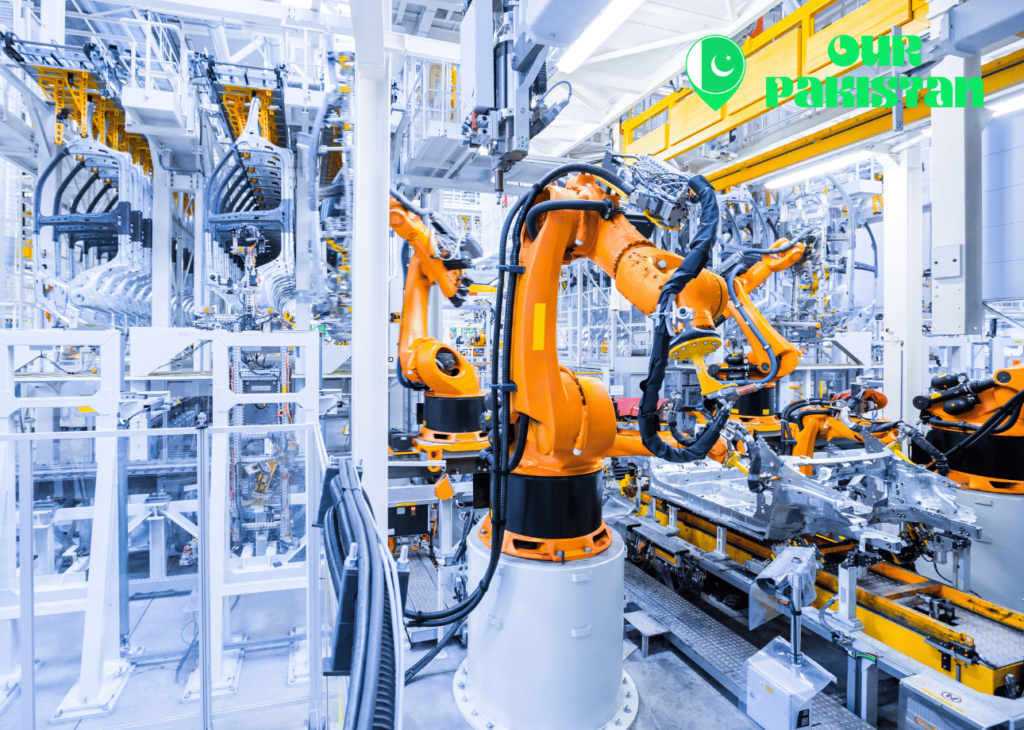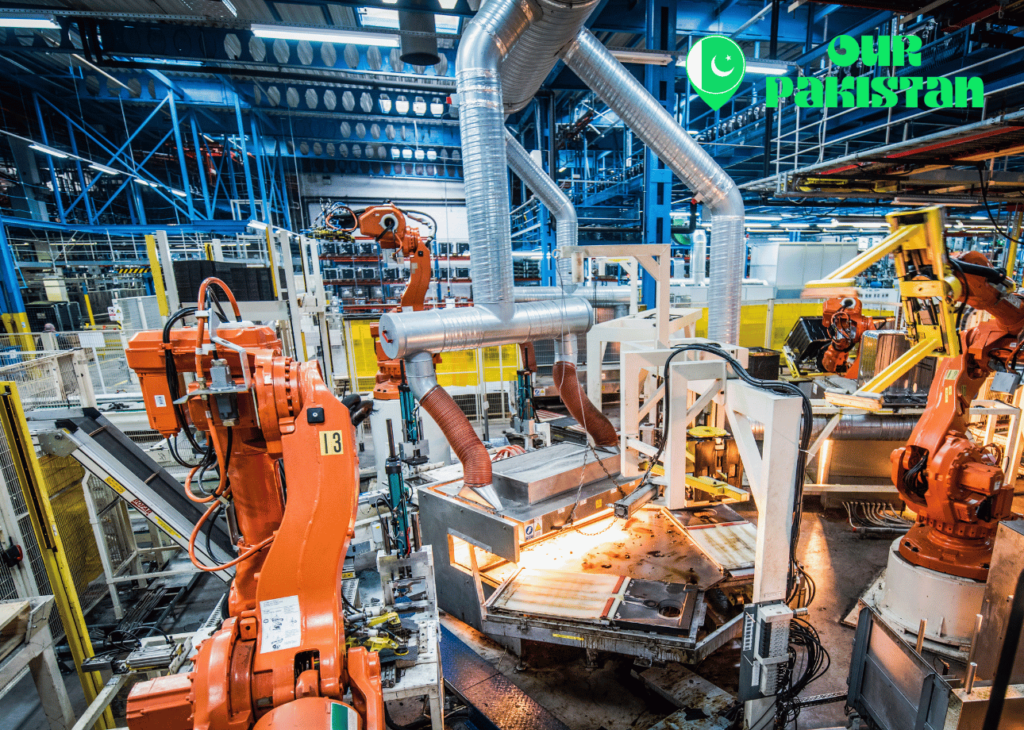In today’s rapidly evolving world, robotics and automation have emerged as game-changers for numerous industries. By integrating cutting-edge technology and artificial intelligence, these innovative solutions are revolutionizing traditional processes and reshaping the industrial landscape. This article delves into the profound impact of robotics and automation on industries, with a specific focus on Pakistan.
Definition of Robotics and Automation
Robotics refers to the design, development, and implementation of robots to perform tasks autonomously or under human supervision. These advanced machines possess the ability to perceive their environment, make decisions, and execute actions with precision. Automation, on the other hand, involves the utilization of technology to streamline processes and eliminate manual intervention.
Significance of Robotics and Automation in Modern Industries
The advent of robotics and automation has ushered in a new era of efficiency, productivity, and competitiveness. By automating tedious and repetitive tasks, these technologies free up valuable human resources, allowing businesses to allocate their workforce in more strategic and creative ways. Moreover, robotics and automation enhance precision, minimize errors, and accelerate production cycles, leading to higher-quality output and increased customer satisfaction.
Overview of How Robotics and Automation are Reshaping Industries in Pakistan
Pakistan, like many developing countries, is harnessing the transformative power of robotics and automation to overcome existing industrial challenges. These technologies have become instrumental in enhancing various sectors, including manufacturing, healthcare, agriculture, and logistics. By embracing innovation, Pakistan aims to boost productivity, embrace sustainability, and unlock new growth opportunities.
The Role of Robotics in Industries
As robotics and automation permeate diverse industries, let’s explore the pivotal role they play in transforming key sectors within Pakistan.
Within the manufacturing sector, robots are revolutionizing the way products are made. By replacing manual labor in assembly lines, robots improve production efficiency, minimize defects, and ensure consistent output quality. With unparalleled precision and speed, these automated systems optimize resource allocation and decrease time-to-market.

Innovation in healthcare robotics has paved the way for groundbreaking advancements in medical procedures and patient care. Robotic surgical systems, for instance, enable surgeons to perform complex operations with enhanced precision and minimal invasiveness. Furthermore, assistive robots aid in patient rehabilitation, allowing individuals to regain mobility and independence.
Robotics in Agriculture
In the agrarian landscape of Pakistan, robotics is driving the agricultural revolution. Autonomous farming machinery and drones equipped with sophisticated sensors have become integral tools for precision agriculture. These technologies optimize irrigation, minimize chemical usage, and monitor crop health, boosting productivity while reducing environmental impact.
Robotics in Logistics and Warehousing
In the logistics and warehousing sector, robots are transforming traditional workflows. Autonomous guided vehicles efficiently move goods within warehouses, minimizing human intervention and enabling seamless tracking of inventory. Additionally, last-mile delivery robots are revolutionizing the logistics landscape, enhancing speed, reliability, and cost-effectiveness.
Advantages of Automation in Industries
Having explored the role of robotics in specific sectors, let’s delve into the broader advantages that automation brings to industries in Pakistan.
Automation greatly enhances productivity by eliminating inefficiencies and human error. By automating repetitive tasks, businesses can accelerate production cycles, increase output volume, and meet market demands more efficiently. Furthermore, automated systems consistently perform tasks with precision, reducing the likelihood of errors that could impact quality or customer satisfaction.
One of the compelling advantages of automation is its ability to optimize resources and reduce operational expenses. By automating processes, businesses can minimize labor costs, as robots efficiently perform tasks that previously required multiple human operators. Moreover, automation maximizes resource utilization, allowing businesses to lower energy consumption, minimize waste, and streamline supply chain management.
In hazardous work environments, automation offers unparalleled safety benefits. Robots can undertake tasks that put human workers at risk, minimizing workplace accidents and injuries. Whether it’s handling toxic substances, working in extreme temperatures, or navigating dangerous terrain, robots ensure the well-being of workers while maintaining operational efficiency.
Automation is synonymous with quality consistency. By removing human error and variability, automated systems ensure that each product meets stringent quality standards. Whether it’s manufacturing automobiles or preparing pharmaceuticals, automation guarantees uniformity in production, instilling confidence in customers and reinforcing brand reputation.
Read More About
Education For Women
Top Universities of Pakistan
Green Tech Pakistan
Impact on the Job Market
While the advantages of automation are undeniable, it’s crucial to explore the corresponding impact on the job market and workforce.
As industries embrace automation, questions arise about potential job displacement. While it’s true that certain roles may become obsolete, automation also creates new opportunities. Data from across industries demonstrates that automation simultaneously displaces and creates jobs, with the latter often requiring a different set of skills. Moreover, automation has the potential to unleash the creative potential of the workforce, as humans can focus on tasks that require critical thinking, problem-solving, and innovation.
Reskilling and Upskilling
To navigate the changing job landscape, reskilling and upskilling become crucial. As automation takes over routine tasks, workers must adapt and acquire new skills that complement emerging technologies. Governments, educational institutions, and businesses must collaborate to provide training and educational programs that enable the workforce to thrive in a technology-driven future. Reskilling and upskilling programs open doors to new career opportunities and cultivate a resilient, future-ready workforce.

Opportunities for Growth
With the rise of robotics and automation, new roles and careers are emerging, offering exciting opportunities for growth. Robotics Engineering, Automation Analysts, and AI Specialists are just a few examples of the diverse career paths that are becoming increasingly relevant. These professions require a unique blend of technical expertise and creativity, offering individuals the chance to contribute to transformative industrial changes and drive innovation.
Robotics and Automation Initiatives in Pakistan
Pakistan is actively encouraging the adoption of robotics and automation through various governmental and institutional initiatives.
Government Support
The Pakistani government has recognized the significant potential of robotics and automation in driving economic growth. Policies and initiatives are being implemented to foster an ecosystem conducive to innovation and adoption in this field. By providing incentives, funding research and development, and streamlining regulatory processes, the government aims to position Pakistan as a leader in robotics and automation.
Research and Development
Pakistani researchers and institutions are making remarkable strides in robotics and automation. Through innovative research and development projects, these individuals and organizations are contributing to the advancement of robotics technologies globally. From developing intelligent robotic systems for disaster response to creating breakthroughs in artificial intelligence, Pakistani scientists are making significant contributions to the field.
Industry Adoption
Several Pakistani businesses have embraced robotics and automation, some becoming success stories that inspire others. These organizations have harnessed the potential of these technologies to optimize their operations, increase productivity, and gain a competitive edge. From small-scale factories to large multinational corporations, these success stories demonstrate the tangible impact robotics and automation can have on business outcomes.
Challenges and Limitations
While the benefits of robotics and automation are vast, certain challenges and limitations must be acknowledged and addressed for widespread adoption.
Technological Barriers
The adoption of advanced robotics technologies may face technological barriers, including high implementation costs and technical complexities. Additionally, integrating robots into existing workflows requires careful planning and coordination to ensure seamless integration. Overcoming these barriers necessitates collaboration between businesses, governments, and technology providers to foster an ecosystem conducive to automation adoption.
Workforce Adaptation
The integration of robotics and automation necessitates a workforce that is prepared to adapt to changing roles and responsibilities. Training and reskilling programs must be implemented to equip workers with the necessary skills to collaborate with robots effectively. By focusing on continuous learning and development, businesses can ensure that their workforce remains agile and future-ready.
Ethical Considerations
Automation raises ethical concerns that require careful consideration. As humans delegate tasks to robots, ethical implications arise regarding job displacement, privacy, and security. An ongoing dialogue must address these ethical considerations to strike a balance between technological progress and societal well-being. Regulations and frameworks should be developed to ensure that automation is deployed in an ethically responsible manner.
Future Prospects
The potential for further integration of robotics and automation in various industries presents tremendous growth opportunities for Pakistan.
Growth Opportunities
As Pakistan continues its journey towards industrial advancement, robotics and automation offer immense growth potential across sectors. By embracing these technologies, businesses can unlock new efficiencies, drive innovation, and gain a competitive edge in the global market. The adoption of automation is not limited to specific industries but has far-reaching implications across the entire economy.
Innovations and Breakthroughs
Ongoing research and development in robotics and automation contribute to the continuous evolution of these technologies. Pakistani scientists and institutions, in collaboration with global partners, are working on cutting-edge projects that will shape the future of robotics. From advancements in AI algorithms to the development of versatile robots, these innovations hold the promise of transforming industries and inspiring further breakthroughs.

The Path Ahead
To capitalize on the potential of robotics and automation, Pakistan must focus on fostering an enabling environment. This involves investing in research and development, promoting collaboration between academia and industry, and continuously updating educational programs to meet the demands of a technology-driven future. By prioritizing innovation and nurturing a culture of creativity, Pakistan can position itself as a global leader in robotics and automation.
Conclusion
In conclusion, robotics and automation are reshaping industries in Pakistan and driving transformative changes. From manufacturing to healthcare, agriculture to logistics, these technologies offer immense advantages, including enhanced efficiency, cost savings, improved safety, and enhanced quality. While the job market undergoes transformation, reskilling and upskilling programs must be prioritized to empower the workforce for the future. By promoting research and development, government support, and industry adoption, Pakistan can leverage the potential of robotics and automation to inspire progress, drive economic growth, and bolster its competitiveness on the global stage.